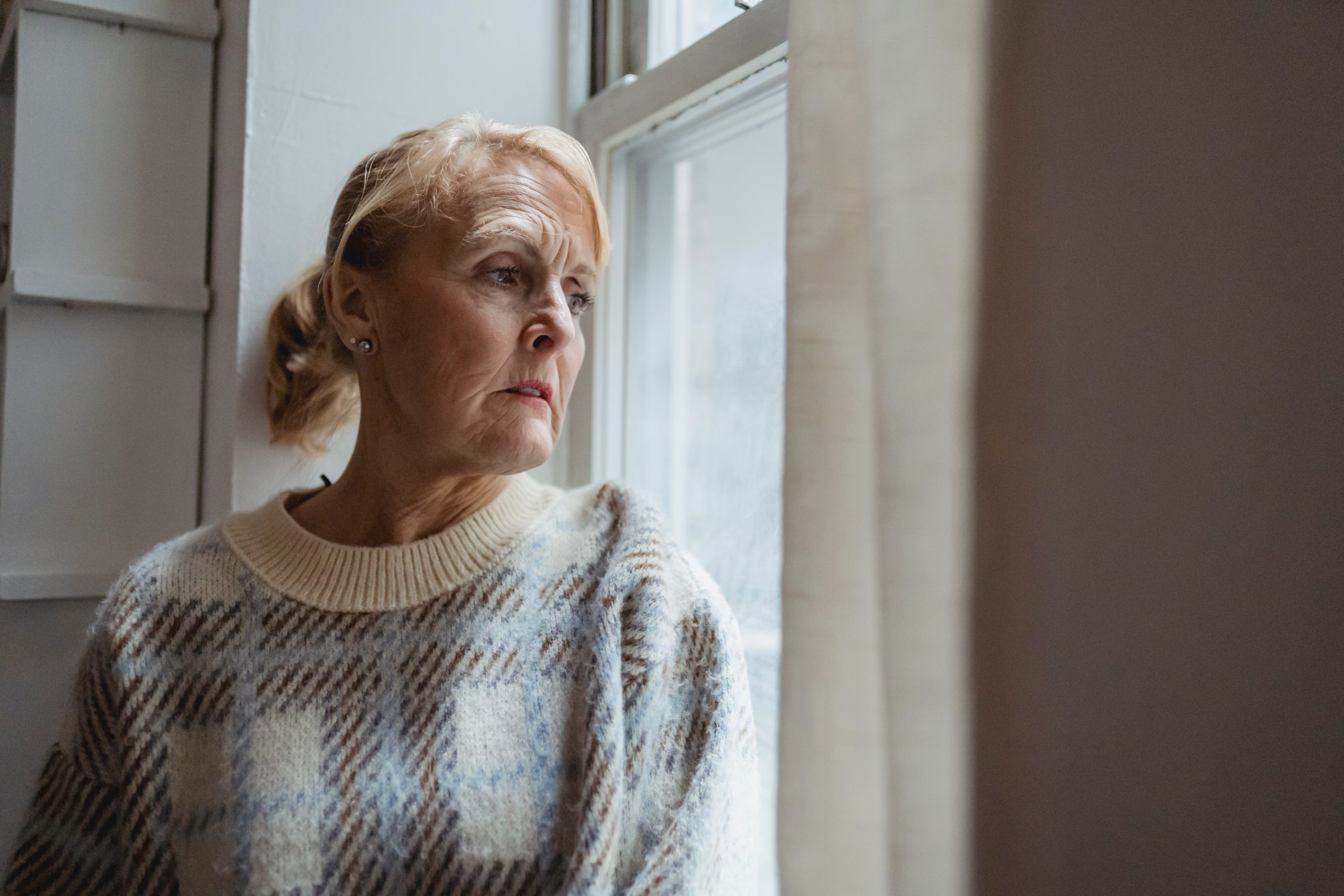Hearing Loss in the Elderly: The Challenges and Ways to Give Support

Hearing Loss is one of the common problems faced by older adults. It is a condition that includes a gradual loss of hearing and usually begins after the age of 60. It can be very hard for your loved one and you as the caregiver to handle. In addition, older adults with hearing loss may find it challenging to have conversations with family and friends, especially understanding a doctor’s advice, hearing alarms, and responding to warnings.
Your aging loved ones who have difficulty hearing may experience depression, mood swings, decision-making difficulties, and social withdrawal because they feel embarrassed about not comprehending what other people said. In addition, there are times your elderly loved one is mistakenly thought to be uncooperative and confused because they can’t hear well.
If hearing problems are left untreated, they can worsen and may bring discomfort to you, and your elderly loved one in the long run. So it is advised to encourage your loved one to see a doctor. Doctors will suggest treatments like medicines, surgery, special training, and hearing aids to manage their hearing problems.
Signs of Hearing Loss in Older Adults
Sometimes your elderly loved may have already experienced it without knowing. And by the time you will approach your loved one to seek help, your loved one may refuse help and won’t admit that there is a problem. However, as someone who looks after your loved one’s welfare, you need not get complacent about your loved one’s response. You have to monitor and take note of these vital signs.
1. Trouble hearing in noisy places like restaurants or parties
2. Losing words in conversation and finding it hard to make out what the person says
3. Difficulty understanding others’ reactions to their behavior
4. Avoiding social engagements for fear of embarrassing themselves by not being able to hear
5. Trouble listening to the TV, radio, or a public speaking
6. Speaking louder when talking with others, especially on the telephone
Types of Hearing Loss in Seniors
Hearing loss comes in different types, such as conductive hearing loss, sensorineural hearing loss, and mixed hearing loss.
- Conductive Hearing Loss: This happens due to damage to the tiny sensory hair cells in the inner ear, allowing the eardrum to vibrate and transmit sound from the outer ear to the brain. The cause may be fluid, a punctured eardrum, or earwax buildup. The doctor can reverse this hearing loss through surgery.
- Sensorineural Hearing Loss: This happens due to internal damage or disorders to hair cells, nerves, or bones in the inner ear, and no treatment can reverse it. There are some causes of sensorineural hearing loss: infections, tumors, tumors of the brain, and other diseases caused by aging.
- Mixed hearing loss– It is a combination of conductive and sensorineural hearing loss. It is most common in older adults.
What Causes Hearing Loss in Seniors
Prolonged exposure to loud sounds is one of the common causes of hearing loss in seniors. For example, noise from shooting guns, motorcycles, concerts, or noisy workplaces can affect older people’s hearing. You can help prevent any further damage to your loved one hearing loss by lowering the sound of your radios, headphones, and televisions.
The buildup of earwax also causes hearing loss. If this causes your loved one’s hearing problem, the doctor can take a mild treatment to get rid of the earwax.
Some seniors may experience hearing loss due to other medical conditions or illnesses, including cardiovascular disease like stroke and high blood pressure, central nervous system disorders like Parkinson’s disease or multiple sclerosis, diabetes, or other endocrine/metabolic disorders. In addition, seniors who are on certain medications such as diuretics (for hypertension) and steroids (steroid antibiotics) may also experience sudden hearing loss.
In addition, certain genetic conditions which are hereditary may also lead to hearing loss in older adults, for example, diabetes mellitus, hereditary peripheral neuropathy (HPN), Meniere’s disease, auditory neuropathy, or presbycusis. These conditions may lead to sensorineural hearing loss in the elderly.

It is essential to know what causes your loved one’s hearing loss, as it will give you an idea of what steps you will take to help them manage or get rid of their hearing problems. It is also essential to remember that your aging loved one needs your utmost care and understanding in this situation. So, you have to know how to support them.
How to Support an Aging Loved One with Hearing Loss
1. Be patient
The older person may not want to hear the sound when trying to listen. And you have to be patient and understand that even though your aging loved one has hearing loss, there are things that they still like doing that may bring pleasure in their lives.
2. Be a good companion
It is also essential to interact with your loved one freely. For example, you can take your loved one on walks, go to the park, or go out to eat. In addition, it will help them have suitable social activities with friends and family without worrying that they might cause embarrassment because of their hearing loss.
3. Act as a good listener
It is vital as it helps your loved one feel a sense of belonging and resiliency in times of difficulty, which will help them maintain a positive attitude even with hearing loss.
4. Be respectful
There are times your loved one will feel embarrassed with their hearing loss. Keep in mind that they are grown-ups, and it is not something to be ashamed of. However, you have to respect them and their insecurities about this issue.
5. Home Care Service
If you have to be in charge of your aging loved one, you may want to find a service that offers home care services, such as a health aide. The health aide is assigned to help your loved one stay at home while recovering from their hearing loss. This idea is excellent if you are busy but still want to show support to your loved one. But, of course, you still need to allocate time for them.

Ways to Talk with your Aging Parent who has Hearing Loss
Talking to someone with hearing loss may be difficult and frustrating. However, if you know what to do, talking to your loved one becomes easier. There are some things to remember when you are talking with an older adult who has hearing loss.
1. Use Gestures and Facial Expressions
Remember that they have difficulty hearing, and they would not be able to read your lips. Therefore, it is essential to use facial expressions and gestures when you are talking with them so that they will be able to understand what you are saying.
2. Face Them
When your elderly loved one is facing you, they will see and hear you easier. Make sure to keep eye contact with them all the times that you are talking to them.
3. Talk Quietly
Make sure that your voices are not too loud as this may disturb the person with hearing loss. Also, ensure that you do not talk too fast since it may also make the person uncomfortable if they do not understand what you are saying.
4. Use Closed Vocabulary
For someone who has hearing loss, it becomes hard for them to understand words that are complicated or words that have many syllables or long phrases in them. Try to use simpler words and sentences for them as it will be easier for them to understand.
5. Use Visuals
Try to use visuals to help the person understand what you are saying. For example, if it is difficult for them to understand something, show them a picture to help them see it or use a chart or diagram to help them know what you are saying.
6. Encourage Them to Wear Hearing Aids
These are hearing instruments that consist of a microphone, amplifier, and receiver. These devices can help your loved one hear conversations clearly and amplify the volume of sounds they hear.
Aging is a challenging stage to go through, and all the stressors in one’s life may lead to hearing loss. It is where you and your family need a lot of support. Talk to your loved one about their hearing loss and be their caregiver until they no longer need one. Talk with them about the issues that may be causing their hearing problems and find out which strategies are working for them to help you get more information on how to prevent further damage to their hearing.
When caring for our elders, we believe that every family deserves peace of mind knowing they have the best possible support system available 24/7. That’s why we offer live-in services, so your loved one never has to worry about being alone again! You can always count on us for reliable senior care services no matter what time of day or night it is – just call 973-338-0124 today!


